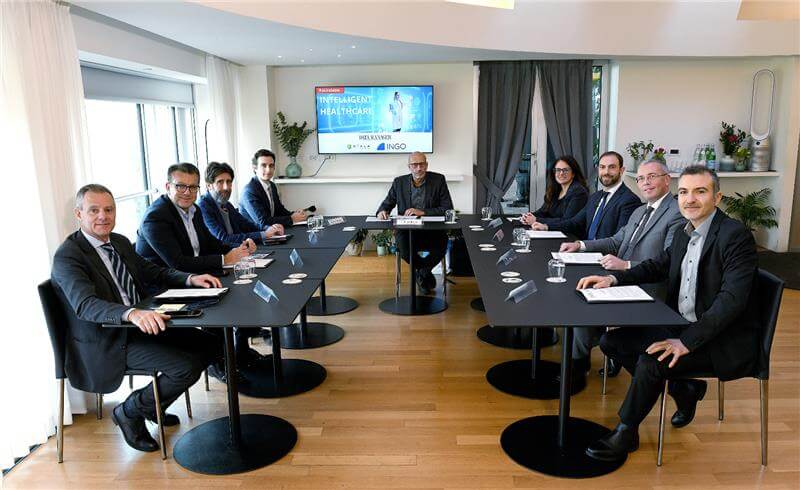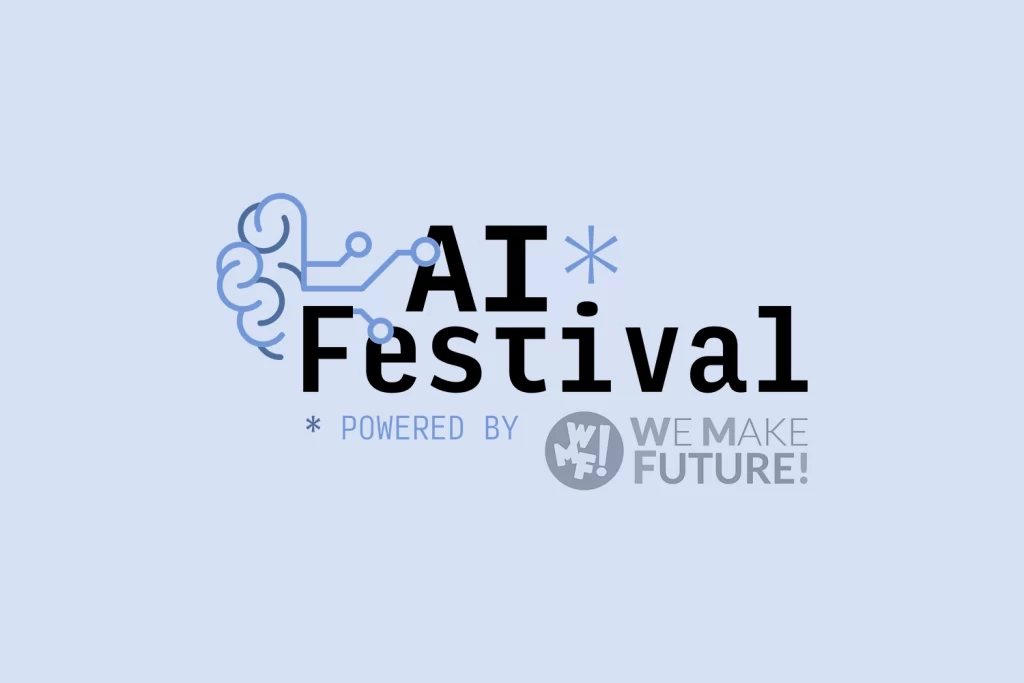
SUMMARY
The concept of Intelligent Healthcare is emerging as one of the pillars for digital transformation in healthcare. Healthcare must adapt to new technologies to better meet patient needs and optimize internal processes in facilities. The panel discussion organized by Data Manager was an ideal showcase to discuss how smart technologies can improve the effectiveness, speed and accessibility of healthcare in Italy.
The evolution of intelligent healthcare in Italy: state of the art and future prospects
The Italian healthcare sector is undergoing a profound digital transformation, accelerated in recent years by the need to respond to increasingly complex challenges. Today, intelligent healthcare represents not only an opportunity, but a necessity to ensure quality, accessible and sustainable healthcare services.
During the meeting organized by Data Manager, which was attended by INGO along with other important realities of the national healthcare landscape, many topics related to digital innovation in healthcare were discussed, but some emerged as particularly relevant for the future of the sector.
The digitization of healthcare processes is leading to a revolution not only in technology, but also in culture, redefining the relationship between patient and healthcare system. As Martino Carrera, CEO of INGO, pointed out during the meeting:
“In order to ensure the best patient accessibility to health care services and ensure the economic sustainability of the facility, whether public or private, it is necessary to channel investment budgets to providers with very specific skills and in-depth know-how of the processes and procedures that affect all the providers involved.”
The challenges of implementing intelligent healthcare in the Italian healthcare system
The implementation of intelligent healthcare solutions in the Italian healthcare system presents unique challenges. During the panel discussion, some critical issues were highlighted such as the fragmentation of the regional healthcare system, resistance to change by some healthcare providers, and concerns about data privacy and security.
INGO shared its experience in overcoming these barriers, proposing a step-by-step and collaborative approach involving all stakeholders, from physicians to patients. The key to introducing innovation in healthcare lies in striking a balance between the adoption of new technologies and the use of human resources, which remain the main cost.
The benefits of intelligent healthcare for patients and caregivers
The benefits of adopting intelligent healthcare solutions are many and positively impact both patients and healthcare providers. The panelists each brought different experiences that demonstrate how digitization of healthcare processes can lead to:
- Reduced waiting time
- Decrease in medical errors
- Improved adherence to treatment
- Optimizing the use of health care resources
For patients, this translates into a smoother, more personalized and accessible healthcare experience. For healthcare workers, it means being able to focus their time and skills on the highest value-added activities, delegating repetitive and administrative tasks to technology.
The role of artificial intelligence in healthcare: opportunities and responsibilities
AI is emerging as a major driver of innovation in intelligent healthcare. At the meeting organized by Data Manager, it was widely discussed how AI is transforming various aspects of healthcare, from early diagnosis to personalization of therapies, from data management to prediction of adverse events.
AI in the service of early diagnosis and predictive medicine
One of the most promising areas for the application of artificial intelligence in healthcare is early diagnosis and predictive medicine. Andrea Valentino, operations manager of IRCCS Ospedale Galeazzi Sant’Ambrogio – Gruppo San Donato, presented the example of imaging diagnostics during the meeting, an area in which AI’s ability to recognize a possible lesion reaches 99.2 percent compared to 97 percent for humans.
Artificial intelligence is not intended to replace the doctor or specialist, but to support them in defining diagnosis and treatment, offering help that can make a difference in terms of speed of response, greater ability to detect any other pathologies, and greater accuracy in the analysis of injuries, such as in the orthopedic field fractures.
Ethics and transparency in the use of artificial intelligence in healthcare
The implementation of AI-based solutions in healthcare raises important ethical and transparency issues. Participants at the meeting emphasized how critical it is to ensure that the use of these technologies is done in accordance with strict ethical principles, ensuring patient privacy, transparency of algorithms, and equity in access to care.
This was confirmed firsthand by Lega del Filo d’Oro Foundation ICT director Antonello Baldini:
What we call the user file must continually evolve to meet legal requirements and technological adaptation. And to meet these requirements we are carrying out various experiments, including in the field of generative artificial intelligence, to try to extract information more easily, while maintaining the highest level of data protection.
Toward inclusive, accessible, multichannel healthcare: INGO’s contribution
One of the central themes of the panel discussion was inclusiveness and accessibility of healthcare services. In a context of growing inequalities in access to care, intelligent healthcare can be a powerful tool for democratization, provided that solutions are designed with the needs of all segments of the population in mind, including the elderly, people with disabilities, and those living in remote or disadvantaged areas.
INGO presented its vision of multichannel healthcare, which integrates physical and digital channels to respond flexibly to different patient needs. At an interview given on the sidelines of the meeting by Martino Carrera, the results obtained in terms of “perceived patient satisfaction” were highlighted, where the synergy between AI and human operators led to an average increase of 45 percent in several hospital groups.
INGO’s solution for intelligent healthcare: AI Reception
INGO positions itself as a strategic partner for health care organizations that wish to embark on or accelerate their digital transformation journey starting with customer care.
AI Reception is an artificial intelligence-based virtual assistant that supports patients by providing an immediate welcome through a bot and directs more complex inquiries to experienced human caregivers. Among the various possibilities offered by AI Reception we find:
- Immediate answers to frequently asked questions
- Support in navigating health services
- Personalized reminders for therapies and appointments
- Scalable and multilingual service
The use of chatbots and virtual assistants with native multilingual support is designed to ensure a conversational experience that naturally replicates human interaction.
These systems powered by state-of-the-art artificial intelligence technologies enable intuitive and empathetic dialogues with patients, providing quick and accurate responses, breaking down barriers for people who do not speak Italian, and consequently creating the conditions for a more inclusive, accessible health care ecosystem that meets the needs of an increasingly diverse population
– Martino Carrera CEO of INGO –
Why choose INGO to improve your customer experience in healthcare
Customer experience, or the overall experience a patient has with the healthcare system, is another key aspect of Intelligent Healthcare. During the panel discussion, it was emphasized that good management of the customer experience is essential for improving patient satisfaction and optimizing clinical outcomes.
With a strong commitment to innovation, inclusiveness, and accessibility, INGO wants to improve its approach to the patient by offering services that put him and his needs at the center.
The participation of INGO at the Data Manager roundtable confirmed the company’s role as a key player in innovation in the Italian healthcare sector, with a clear vision and a concrete approach to the challenges of intelligent healthcare. The solutions presented represent a tangible example of how technology, when used with responsibility and vision, can contribute to significantly improve the quality of healthcare and people’s lives.
Contact us
Find out more about our CX services
INGO, thanks to multichannel and technological innovations, is able to build specific projects for each company, following the process from the initial analysis phase to the implementation of integrated, scalable and modular omnichannel strategies. For over 20 years, Made in Italy at the service of the customer experience.
blog


